Lower Tuition Fees
International tuition has been steadily increasing since the 1970s and has only gotten worse in recent years. This is because Post-Secondary Education (PSE) funding across Canada is over-reliant on international tuition fees (see Figures 3.5 and 5.5 for domestic vs. international fees). This is mainly due to local provincial governments' PSE public funding cuts. For example, between 2009 to 2015, there was roughly a $1.6 billion decrease in public funding to universities across Canada. For universities to fill this funding gap, they have shifted to rely heavily on international tuition fees, which have increased by $1.5 billion in the same years. This means that domestic tuition fees, student services, support, scholarships, bursaries and faculty funding are heavily dependent on international student fees.
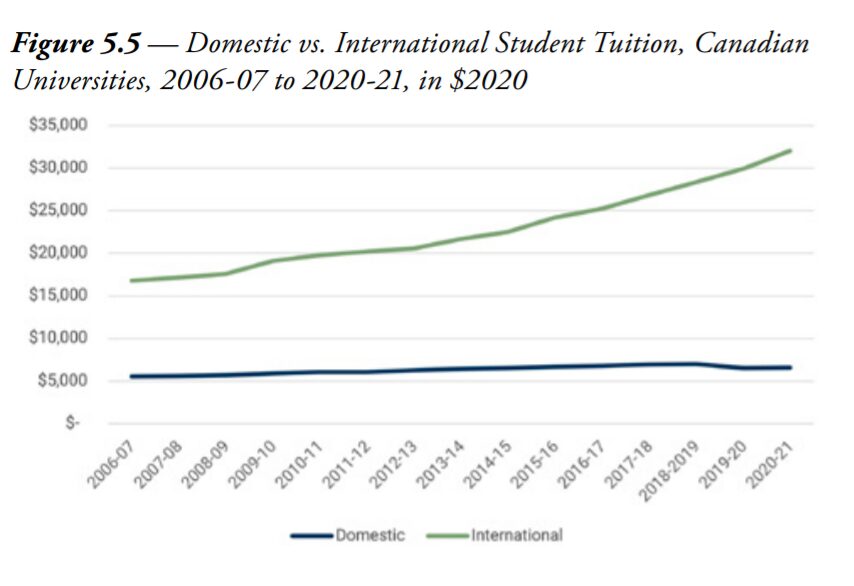 | 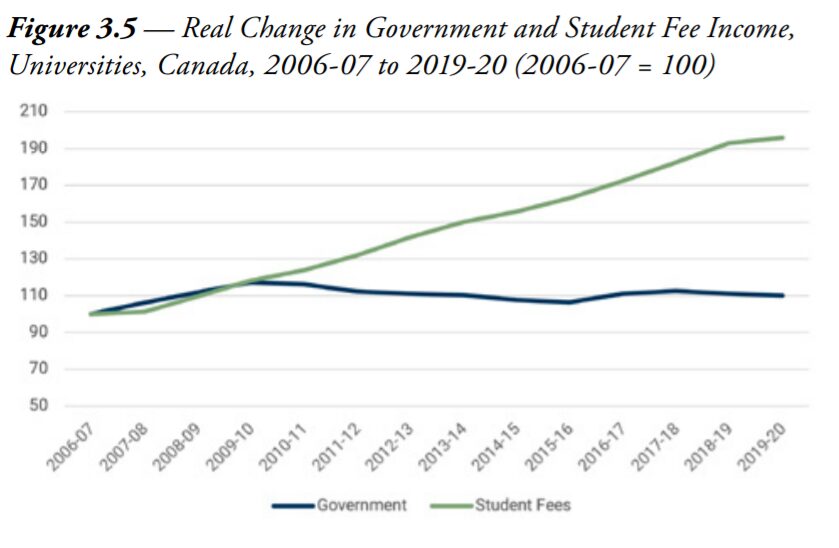 | 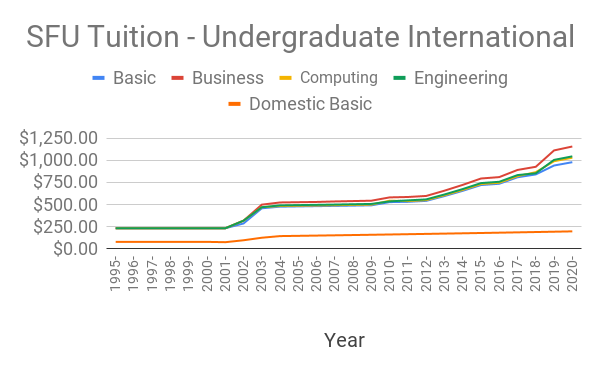 |
Even during a global pandemic that led to a worldwide economic downturn and job losses, universities still decided to increase domestic and international tuition fees. This exposed the vulnerability of migrant students and severely affected (Content Warning: article talks about suicide) their wellbeing. The over-reliance on international tuition fees has led to the exploitation of migrant students as cash cows who, in return, receive very little support for their wellbeing and success in Canada. In comparison, international students contributed $19.7 billion in GDP $3.7 billion in tax revenue and supported 218,577 jobs in 2018. This is genuinely unjust and shows how exploited migrant students are in Canada.
The current PSE funding model is exploitative, unsustainable and volatile. For example, we saw a 17% decrease in international student numbers across Canada in 2020 due to the COVID-19 pandemic. The drop has likely led to faculty and staff layoff, which leads to fewer course offerings and student support and services (refer to the FPSE graph on page 4 of the report).
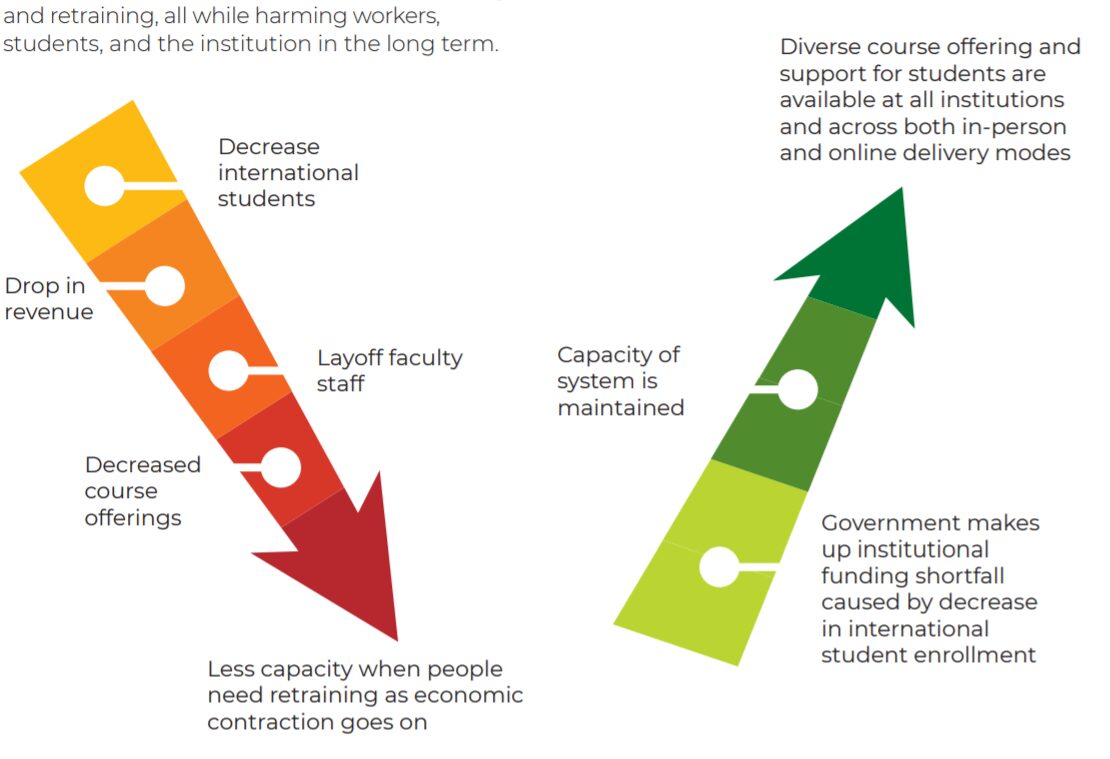
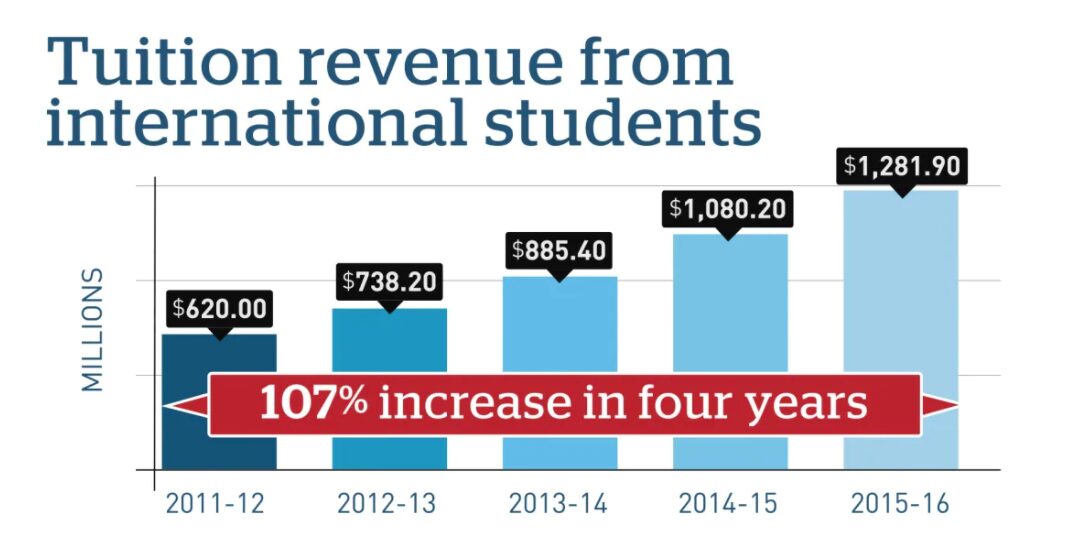
Universities rely heavily on International Students. Had the pandemic not occurred, tuition from international students would have accounted for almost the same amount of revenues for Ontario universities as provincial government funding.
